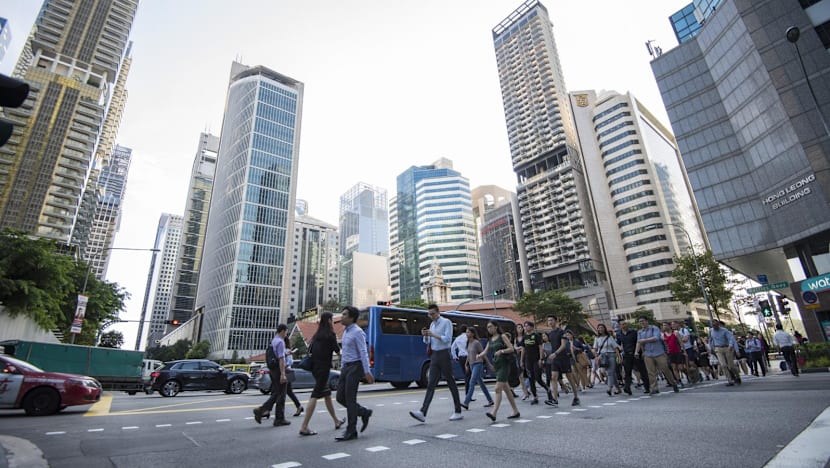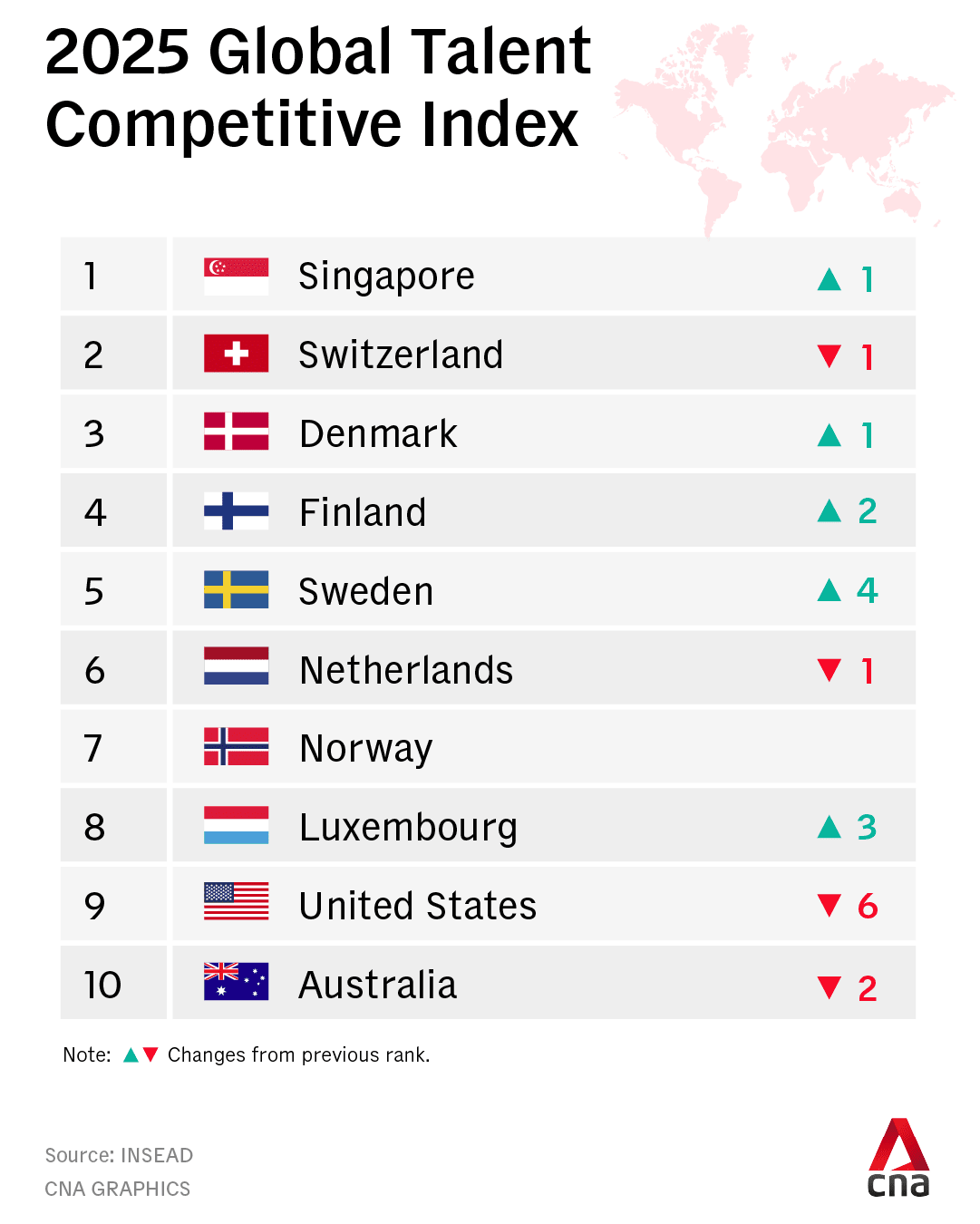Singapore ranked world’s best for attracting and retaining talent
Singapore is the only Asian country in the top 20, in a list heavily dominated by wealthy European nations.

Office workers walking on the streets of the Central Business District. (File photo: iStock)

This audio is generated by an AI tool.
SINGAPORE: Singapore has been ranked the world’s most attractive place to develop, attract and retain talent, topping the Global Talent Competitiveness Index for the first time.
The annual ranking, launched in 2013 by business school INSEAD, sets a benchmark for policy thinking on labour markets, work organisation and talent flows.
Singapore clinched the top spot due to its robust education system, sound governance and proactive approach to building an adaptive, innovation-ready workforce – qualities the report noted are increasingly crucial in the age of artificial intelligence.
This year’s edition assessed 135 countries across 77 indicators. High-income European nations continued to dominate the upper tiers of the ranking.

Switzerland slipped from first place last year to second place this year, with Denmark in third. Finland, Sweden, the Netherlands, Norway, Luxembourg, the United States and Australia rounded out the top 10.
Notably, the US posted its weakest performance since the index began, dropping from third to ninth.
The next Asian economies on the list were Japan at 28th and South Korea at 31st, while China ranked 53rd.
HOW SINGAPORE GOT TO #1
Emeritus professor Paul Evans, co-founder of the index, noted that Singapore has consistently placed second since the index’s inception.
This time, it was able to leapfrog Switzerland, largely due to a significant improvement in talent retention. Singapore jumped seven places from 38th in the previous ranking to 31st this year in that category.
“The weakest pillar for Singapore has always been retaining talent. The law of talent is – the better you are, the more opportunities you have elsewhere. Singapore strengthened its biggest weakness to put it in the top spot,” he told CNA’s Singapore Tonight on Wednesday (Nov 26).
Singapore also performed strongly in its regulatory landscape and high-level skills development, particularly in research and digital fields.
The nation also ranked first globally for generalist adaptive skills, reflecting its ability to nurture workers whose capabilities remain relevant amid rapid technological and economic shifts.
“(The top countries) are not only able to attract, keep and develop the right sort of talent (amid) constantly changing economies – what lies behind that are the ecosystems,” said Prof Evans, who also teaches organisational behaviour at INSEAD.
“It's collaboration and cooperation – which is exemplary here in Singapore – between the government, educational institutions, labour unions, as well as the business community, which can express (labour) needs and quickly convert them into relevant talent skills.”
He noted that Singapore continues to attract and retain talent because skilled workers feel they have a future here, citing strong employability, a safe and highly liveable environment, and growing efforts to make the city more vibrant.
But he stressed that Singapore is still “far from perfect” and must continue improving to meet the expectations of both local and global talent.
ADAPTING TALENT STRATEGIES
Recruitment industry leaders say the recognition will likely draw more companies to Singapore.
“Singapore is famous for being a launch pad, both for regional and global expansion … already having quite a trusted environment, both from a political as well as an economical perspective,” said Mr Jon Goldstein, a managing partner at recruitment firm Page Executive.
“Now, with this (recognition), you're going to see more businesses putting headquarters (and) launch teams here, bringing higher value positions to Singapore’s market."
Senior Parliamentary Secretary for Manpower Shawn Huang said Singapore’s talent strategies must remain flexible amid heightened disruption brought about by advanced technologies and shifting workforce demands.
“To keep our competitive edge as a global business node, we must continue to strengthen our position as a global hub for talent, by attracting talent from around the world, while also investing in our local talent pipeline,” he added
“At the same time, we must not overlook soft skills that are AI resilient, such as creativity, critical thinking, emotional intelligence and leadership, which will become more valuable as AI increasingly handles routine tasks."
















